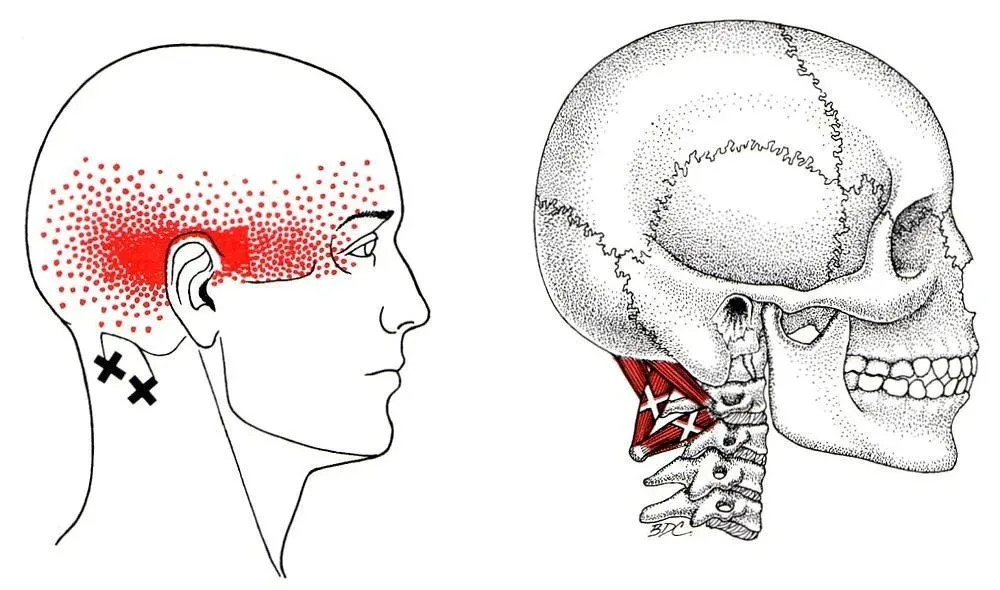
Cervicogenic headaches are a type of headache that originates from the neck. Problems with the neck’s bones, discs, or soft tissues cause them. These headaches can be excruciating and may last for hours or even days.
The most common symptoms of cervicogenic headaches include:
Treatment for cervicogenic headaches usually involves a combination of:
More invasive treatments like injections or surgery may sometimes be necessary. If you think you may be suffering from cervicogenic headaches, it is crucial to see a doctor for an accurate diagnosis and appropriate treatment plan.
Problems with the neck’s bones, discs, or soft tissues cause cervicogenic headaches. Some of the most common causes include:
In some cases, the exact cause of cervicogenic headaches may not be clear. However, anything that puts extra stress or strain on the neck can lead to these headaches.
Diagnosing cervicogenic headaches can be challenging because the symptoms can be similar to other types of headaches, such as migraines or tension headaches. To make an accurate diagnosis, your doctor will likely:
Based on the results of these tests, your doctor can determine if your headaches are indeed cervicogenic and develop an appropriate treatment plan.
Treatment for cervicogenic headaches usually involves a combination of therapies aimed at relieving pain and addressing the underlying neck problem. Some of the most common treatments include:
Over-the-counter pain relievers like ibuprofen or paracetamol can help relieve the pain of cervicogenic headaches. In some cases, stronger prescription medications may be necessary.
Physical therapy can help stretch and strengthen the muscles in the neck, improve posture, and relieve pain. Your physical therapist may use techniques like:
Poor posture can strain the neck and contribute to cervicogenic headaches. Your doctor or physical therapist can teach you exercises and techniques to improve your posture and reduce strain on your neck.
Stress can cause muscle tension in the neck, leading to cervicogenic headaches. Stress management techniques like relaxation exercises, deep breathing, and meditation can help reduce muscle tension and prevent headaches.
In some cases, your doctor may recommend injections to relieve pain and inflammation in the neck. These may include:
In rare cases, surgery may be necessary to correct a problem in the neck that is causing cervicogenic headaches. Surgery is usually only considered if other treatments have not been effective and the headaches are severely impacting your quality of life.
If you think you may be suffering from cervicogenic headaches, it is important to see a doctor for an accurate diagnosis and appropriate treatment plan. With the right combination of therapies, most people with cervicogenic headaches can find relief and get back to their normal activities.